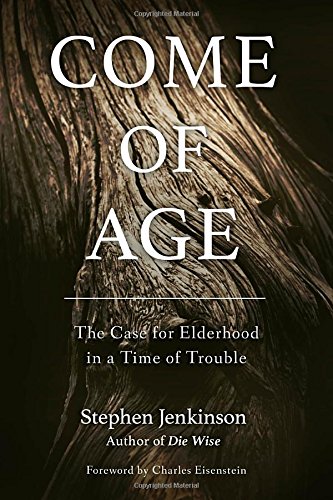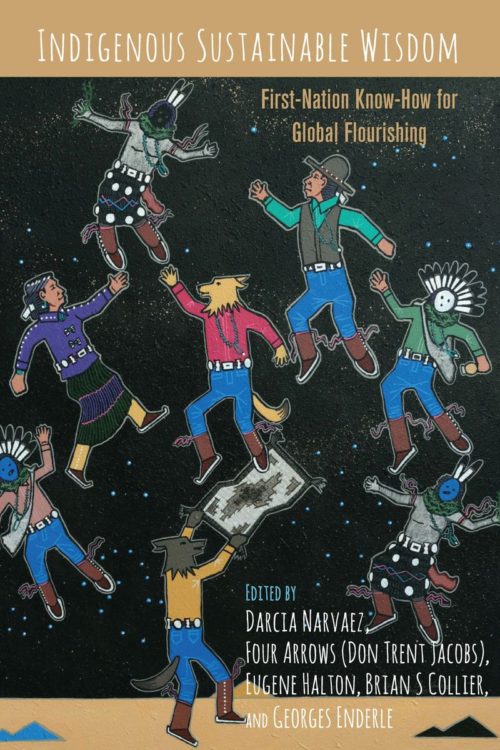Older And Weaker, Or Older and Wiser? How Will You Grow Old?
THIS IS PART ONE OF A FOUR PART SERIES
The cultural meme about aging these days is that as you age you grow less well and less smart. Comparisons of adult functioning often use as a baseline the functional capacities of undergraduates who have successfully learned schooling’s tasks. Studies comparing college students with older adults show the latter’s relatively slow reaction time and poor memory.
 Yet mature adulthood can bring other capacities. According to some researchers (e.g., Erikson, 1950), adulthood does not emerge before the third or fourth decade. Indeed, brain myelination continues to the fourth and fifth decade, suggesting that aging is not only about the deterioration of fluid intelligence but the development of synthesizing capacities, which are linked to wisdom. Psychological studies are starting to examine the positive changes.
Yet mature adulthood can bring other capacities. According to some researchers (e.g., Erikson, 1950), adulthood does not emerge before the third or fourth decade. Indeed, brain myelination continues to the fourth and fifth decade, suggesting that aging is not only about the deterioration of fluid intelligence but the development of synthesizing capacities, which are linked to wisdom. Psychological studies are starting to examine the positive changes.
The emphasis on mental deterioration with age is a recent meme, perhaps one linked to industrialization, as in traditional societies the elders were needed for their wisdom to guide community decisions. Wise researchers are learning to work with elders in indigenous communities.
Perhaps one reason the recent meme has developed is that the modern world continues to develop new technologies, turning upside down the transfer of learning: the young learn new technologies quickly and end up guiding adults in their usage.
Support and expectations for development have also shifted. Only recently has neurobiological research uncovered the impact of early life experience on capacities for life. For example, healthy stress response is established from responsive care in early childhood; poor early experience plagues the individual with malfunctioning stress response lifelong (Lupien et al., 2009).
Responsive care is integral to humanity’s evolved nest. Humanity’s evolved nest for young children corresponds largely with that of social mammals, who emerged over 30 million years ago, and includes soothing perinatal experiences; responsiveness to needs; affectionate touch; infant initiated breastfeeding for several years; several responsive adult caregivers; positive social climate for mother and child; self-directed free play in the natural world with multi-aged playmates (Konner, 2005).
For a highly immature newborn (recall that humans are like fetuses of other animals until 18 months of age; Trevathan, 2011), the evolved nest supports appropriate psychosocial neurobiological development.
Our studies indicate that adults who have experienced more of the evolved nest have better mental health and sociomoral capacities (Narvaez, 2016; Narvaez et al., 2016). But most evolved nest characteristics have deteriorated in modern societies like the USA (Narvaez, 2014; Narvaez et al., 2013) decreasing health (National Research Council, 2013; Nguyen et al., 2018). The normal course of self-actualization towards wisdom is undermined when the adult has to focus on self-healing of primal wounding from early trauma or undercare.
What do elders know and do in traditional societies? They are repositories of how to live a good life. They are able to perceive the “big picture”—e.g., the impact of actions now on future generations. They are less concerned with their own identities and more with community wellbeing. They tell stories to guide others, rather than ‘boss them around.’
The next post reviews the characteristics of wise elders in traditional societies and makes suggestions for how to return to promoting elder wisdom
SERIES
1. Older and Weaker, or Older and Wiser? ABOVE
2. Wise Elders in the Circle of Life
3. Self-Actualize and Become a Wise Elder
4. What Wise Elders Know (Especially Women)
REFERENCES

Erikson, E. H. (1950). Childhood and society. New York: Norton.
Hartshorne, J. K., & Germine, L. T. (2015). When does cognitive functioning peak? The Asynchronous rise and fall of different cognitive abilities across the life span. Psychological Science, 26(4), 433–443. https://doi.org/10.1177/0956797614567339
Konner, M. (2005). Hunter-gatherer infancy and childhood: The !Kung and others. In B. Hewlett & M. Lamb (Eds.), Hunter-gatherer childhoods: Evolutionary, developmental and cultural perspectives (pp. 19-64). New Brunswich, NJ: Transaction.
Narvaez, D., Wang, L, & Cheng, A. (2016). Evolved Developmental Niche History: Relation to adult psychopathology and morality. Applied Developmental Science, 20(4), 294-309. http://dx.doi.org/10.1080/10888691.2015.1128835
National Research Council (2013). U.S. Health in International Perspective: Shorter Lives, Poorer Health. Washington, DC: The National Academies Press.
Nguyen, T., Hellebuyck, M., Halpern, M., & Fritze, D. (2018). The state of mental health in America. Alexandria, VA: Mental Health America
Trevathan, W.R. (2011). Human birth: An evolutionary perspective, 2nd ed.. New York: Aldine de Gruyter.
Featured Photo Shutterstock/blew_s

